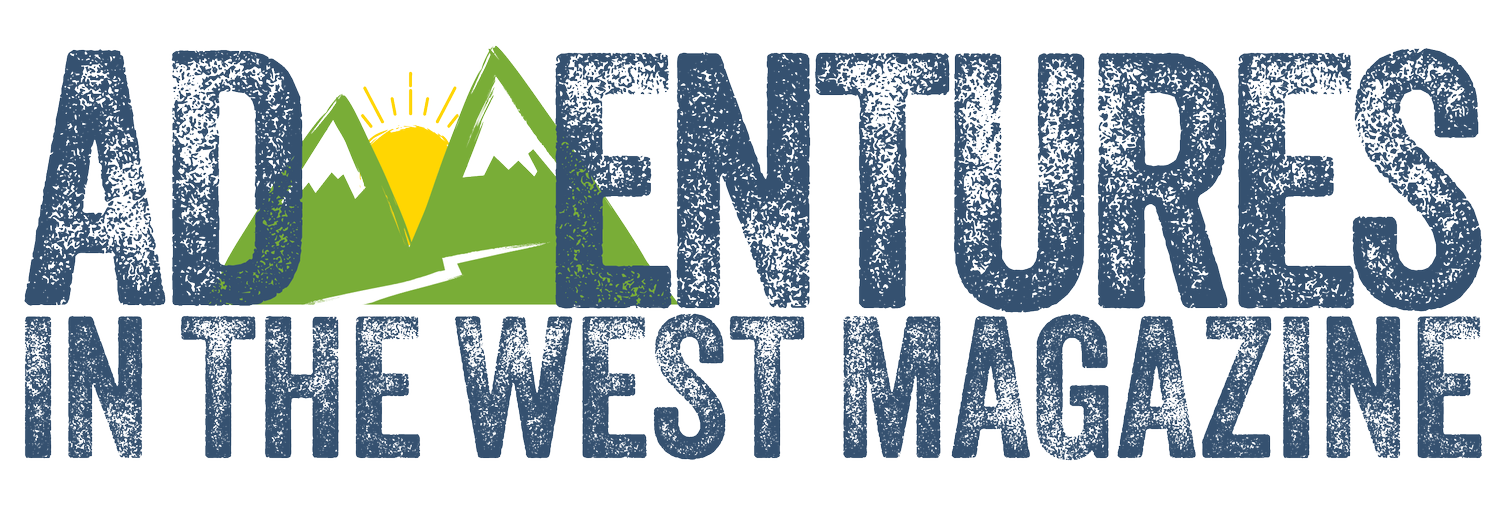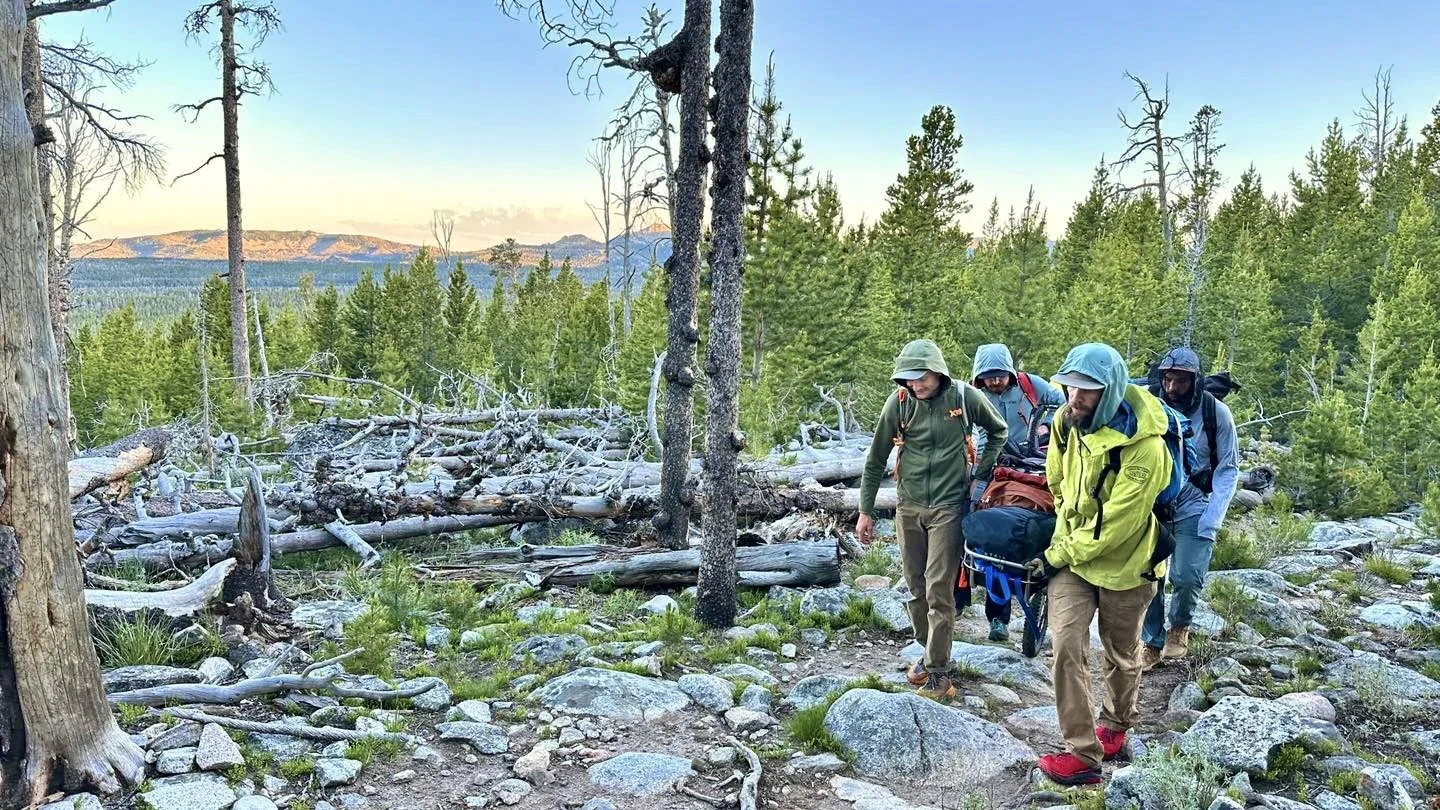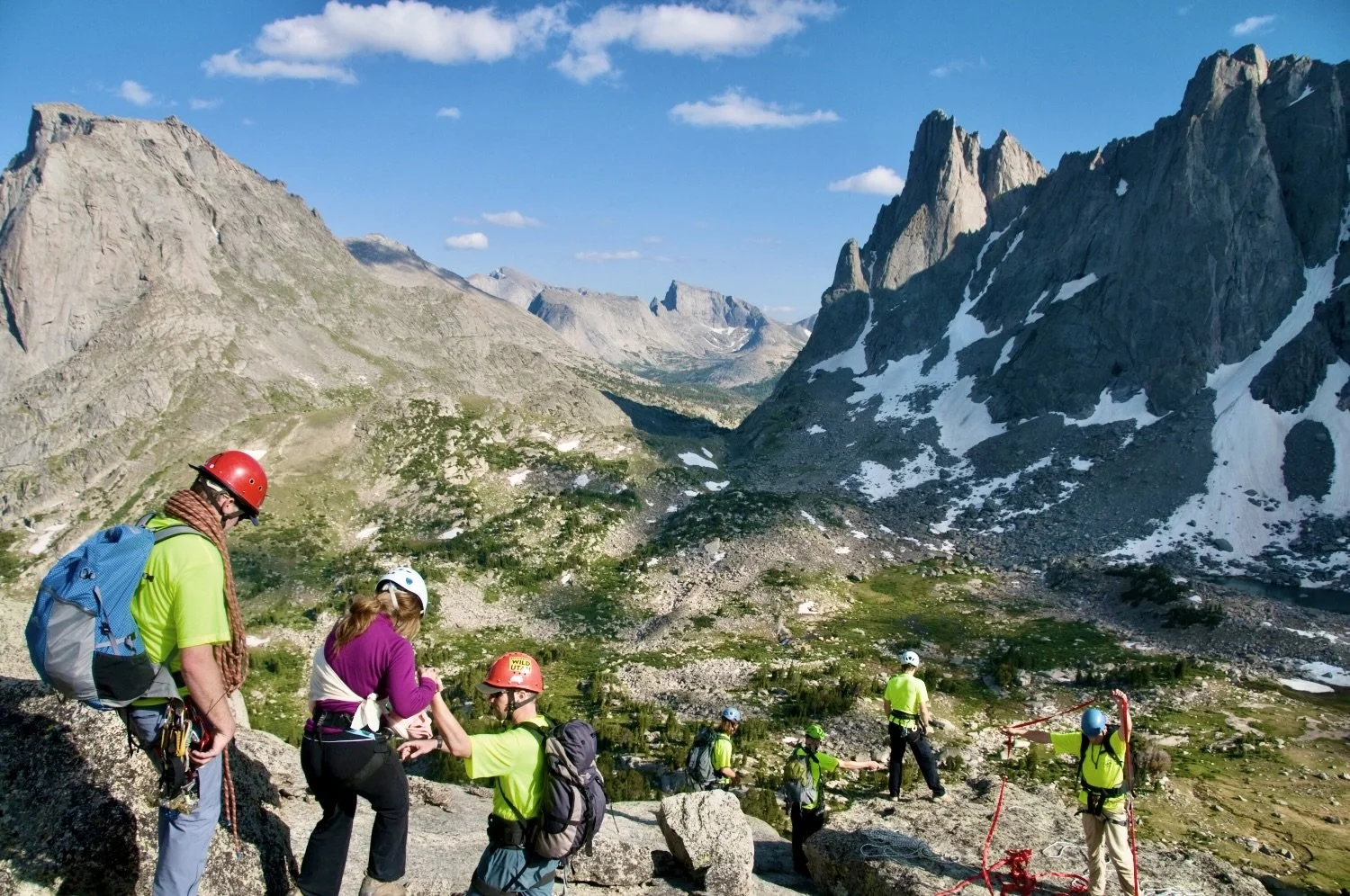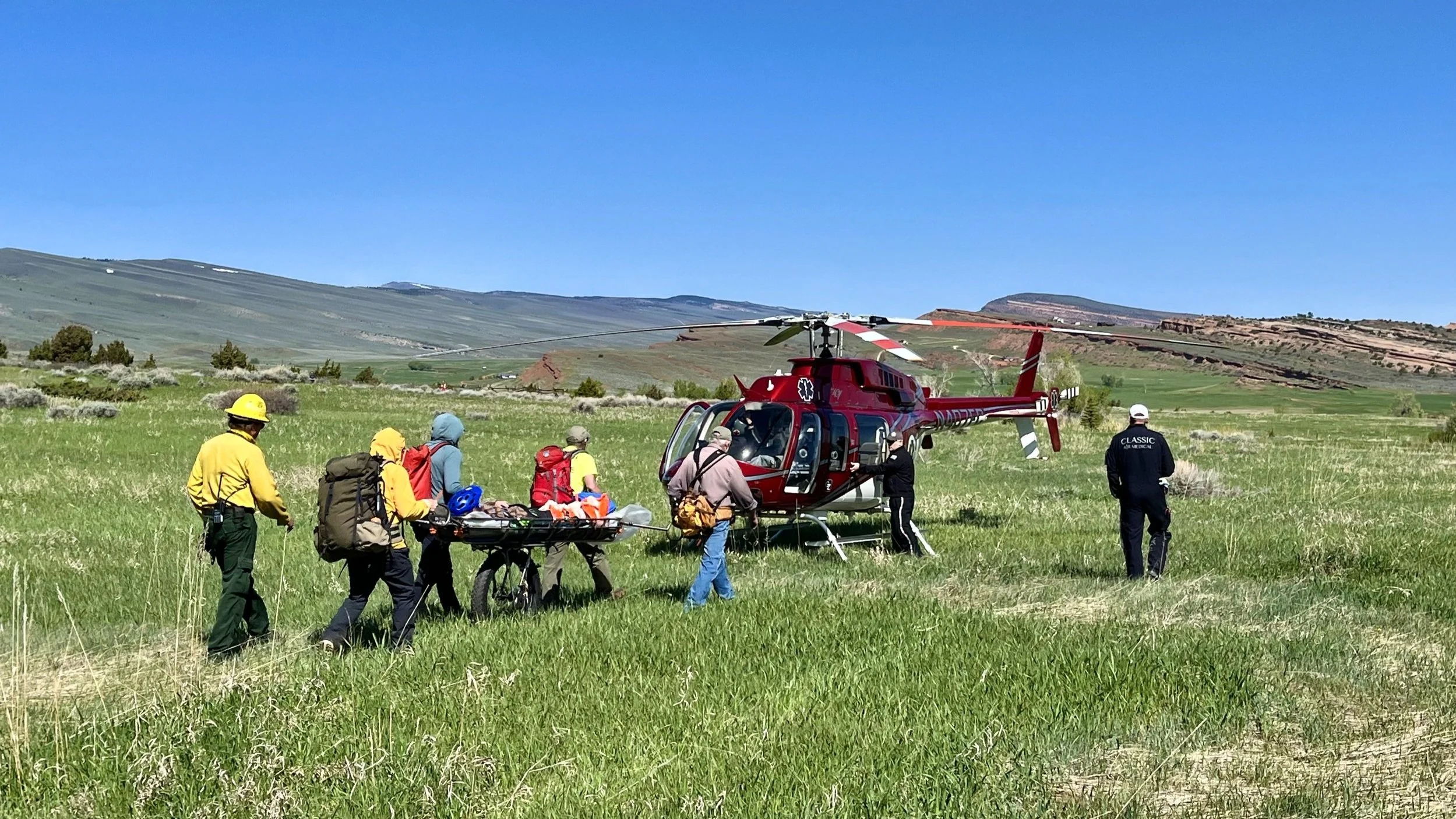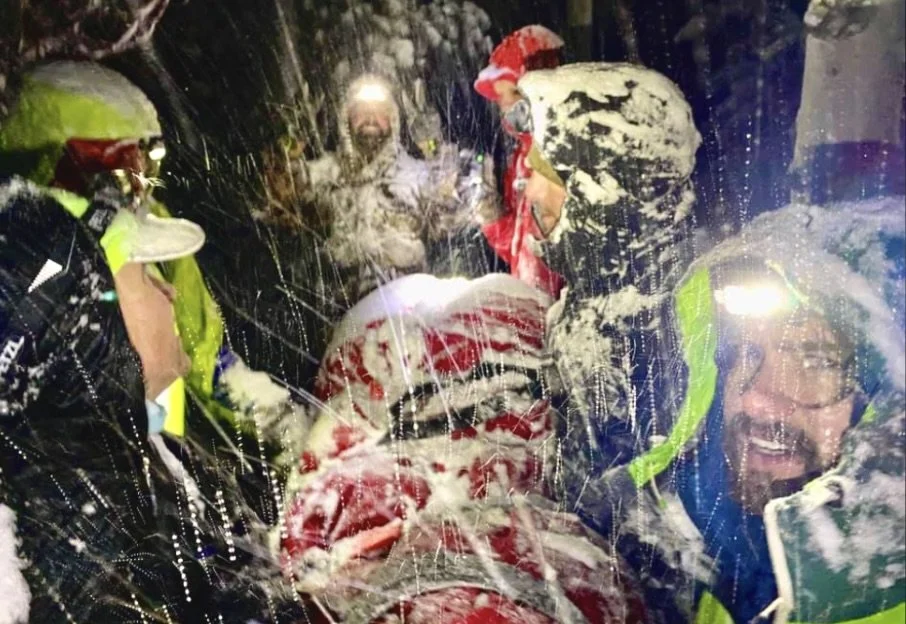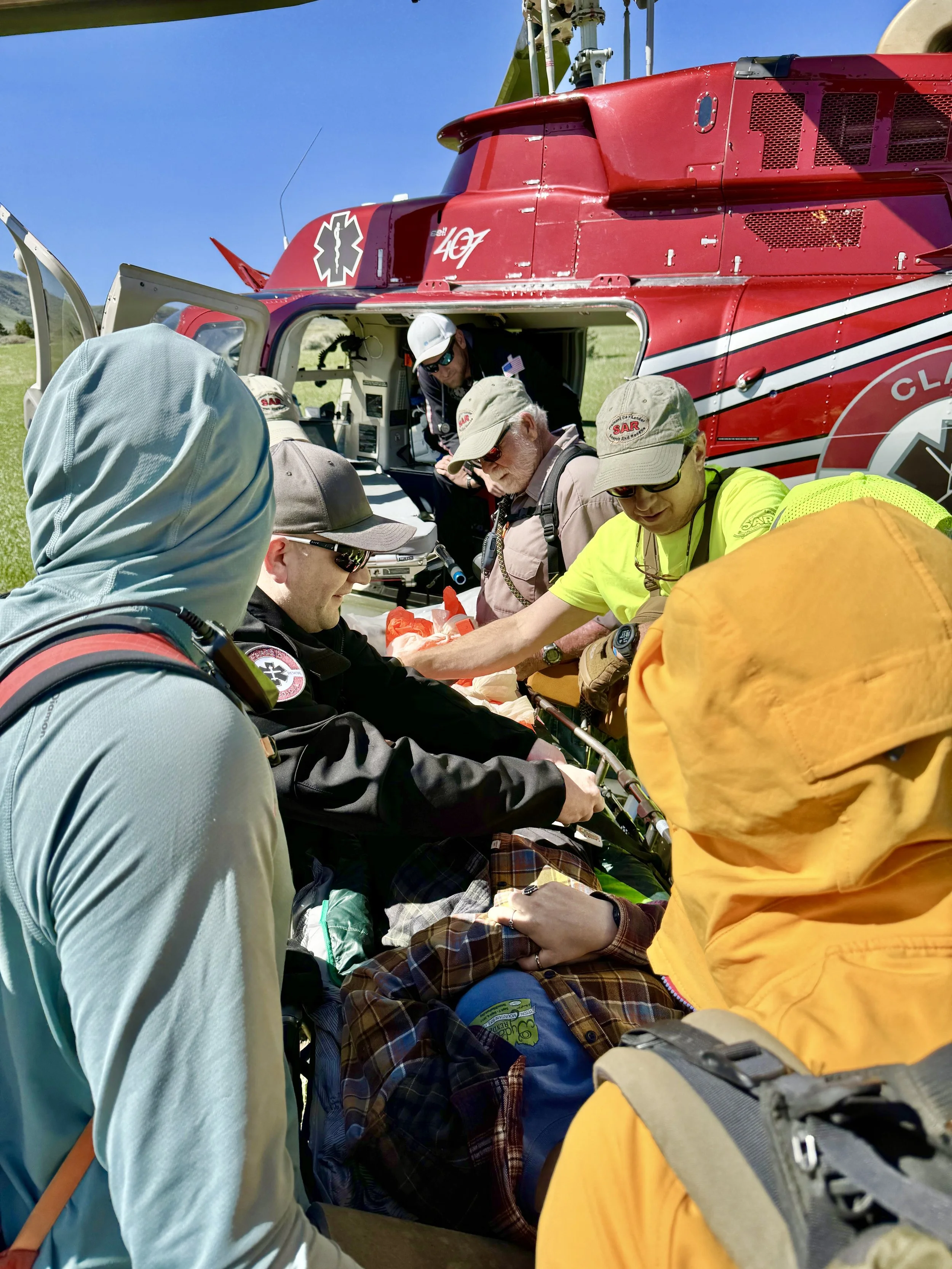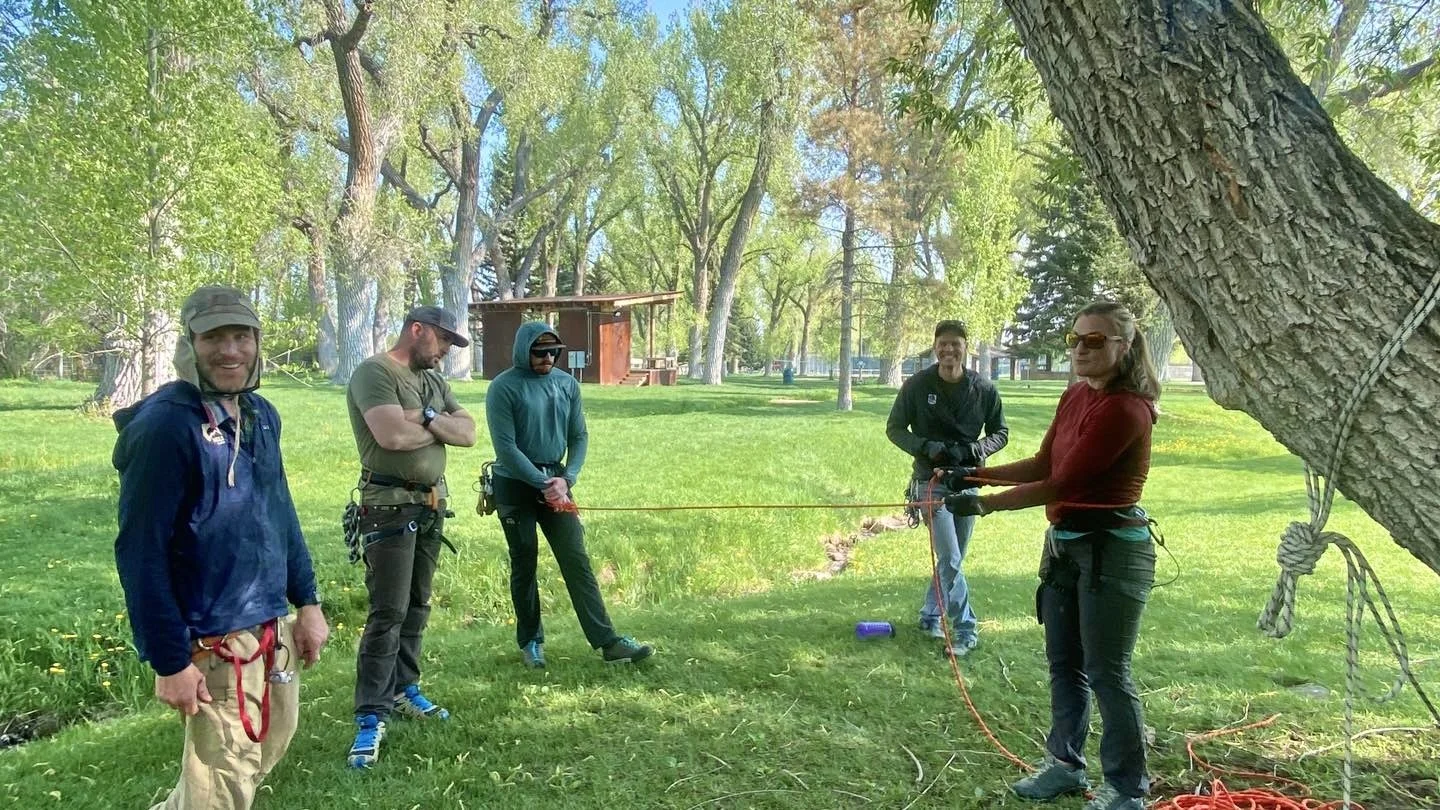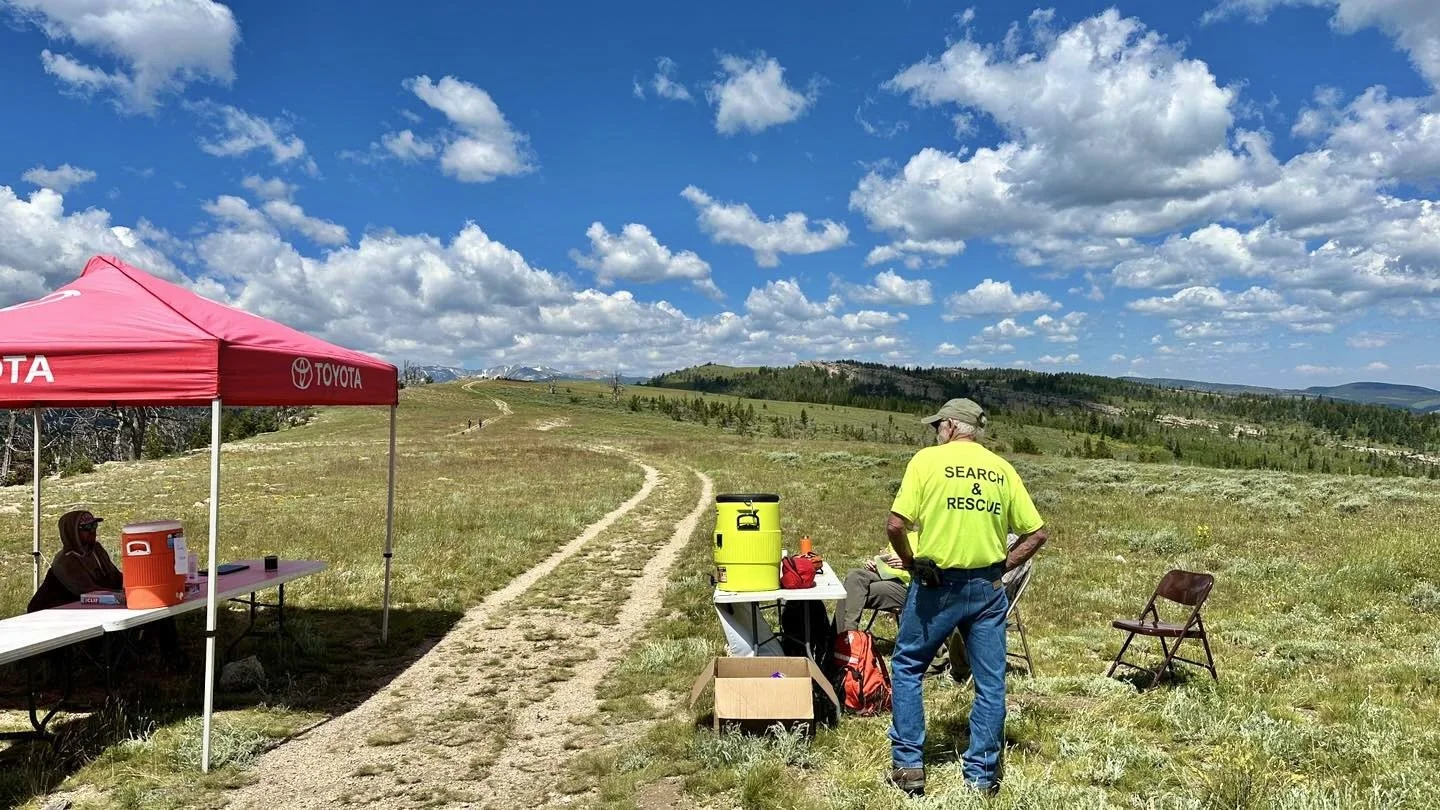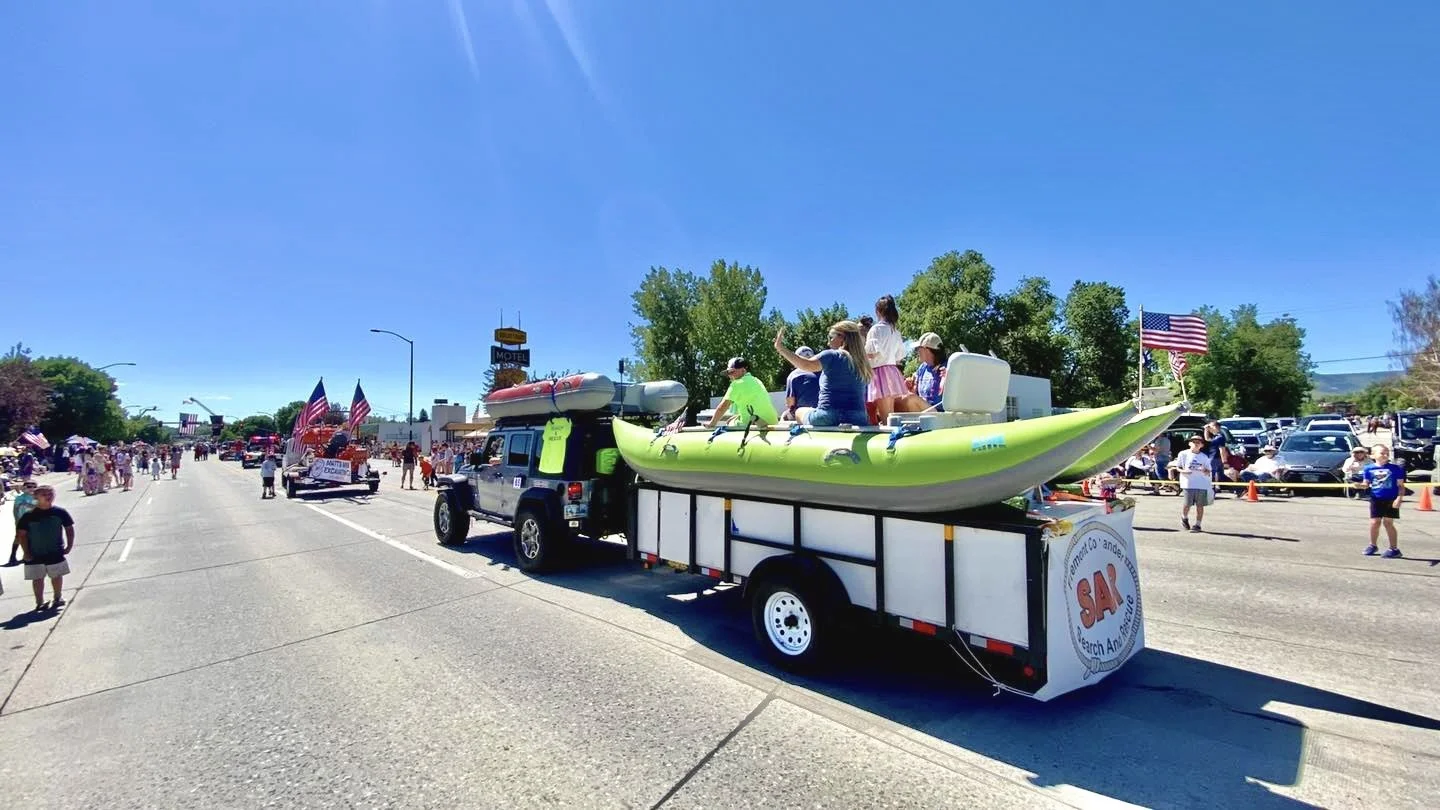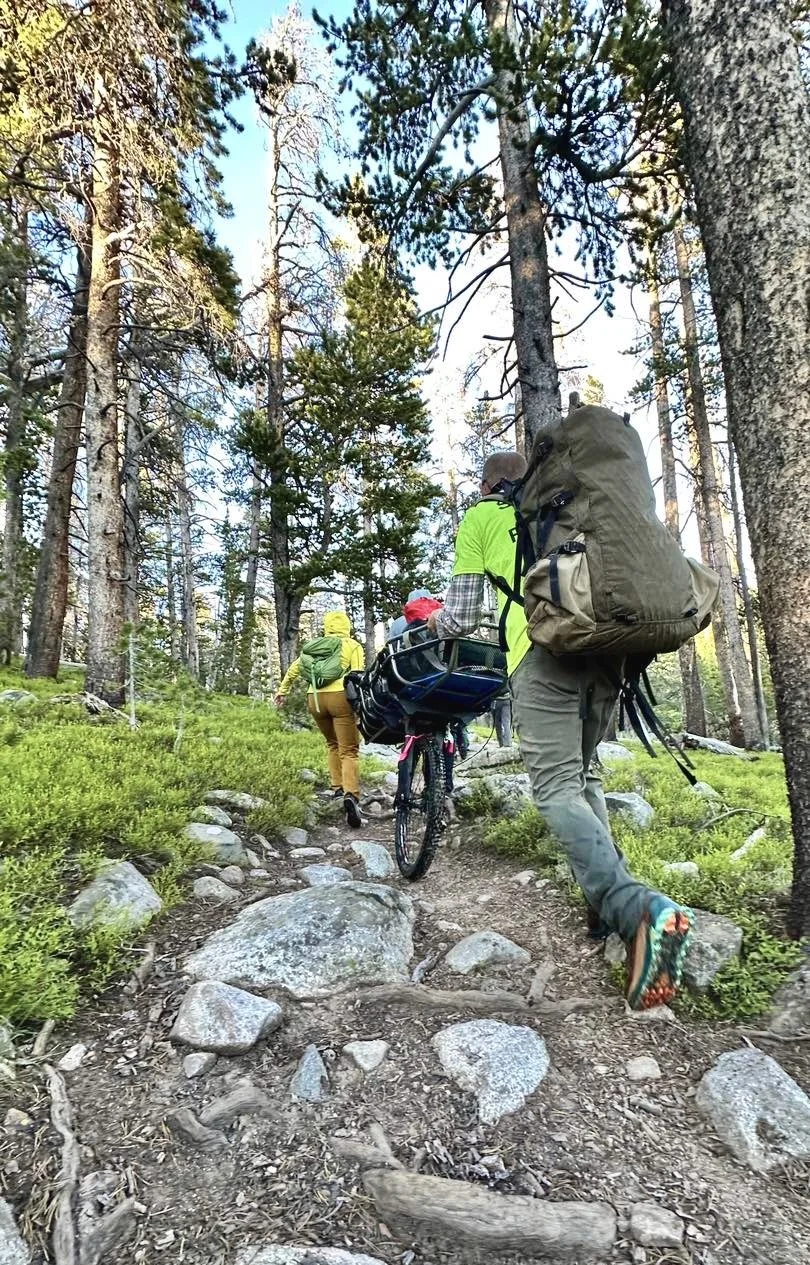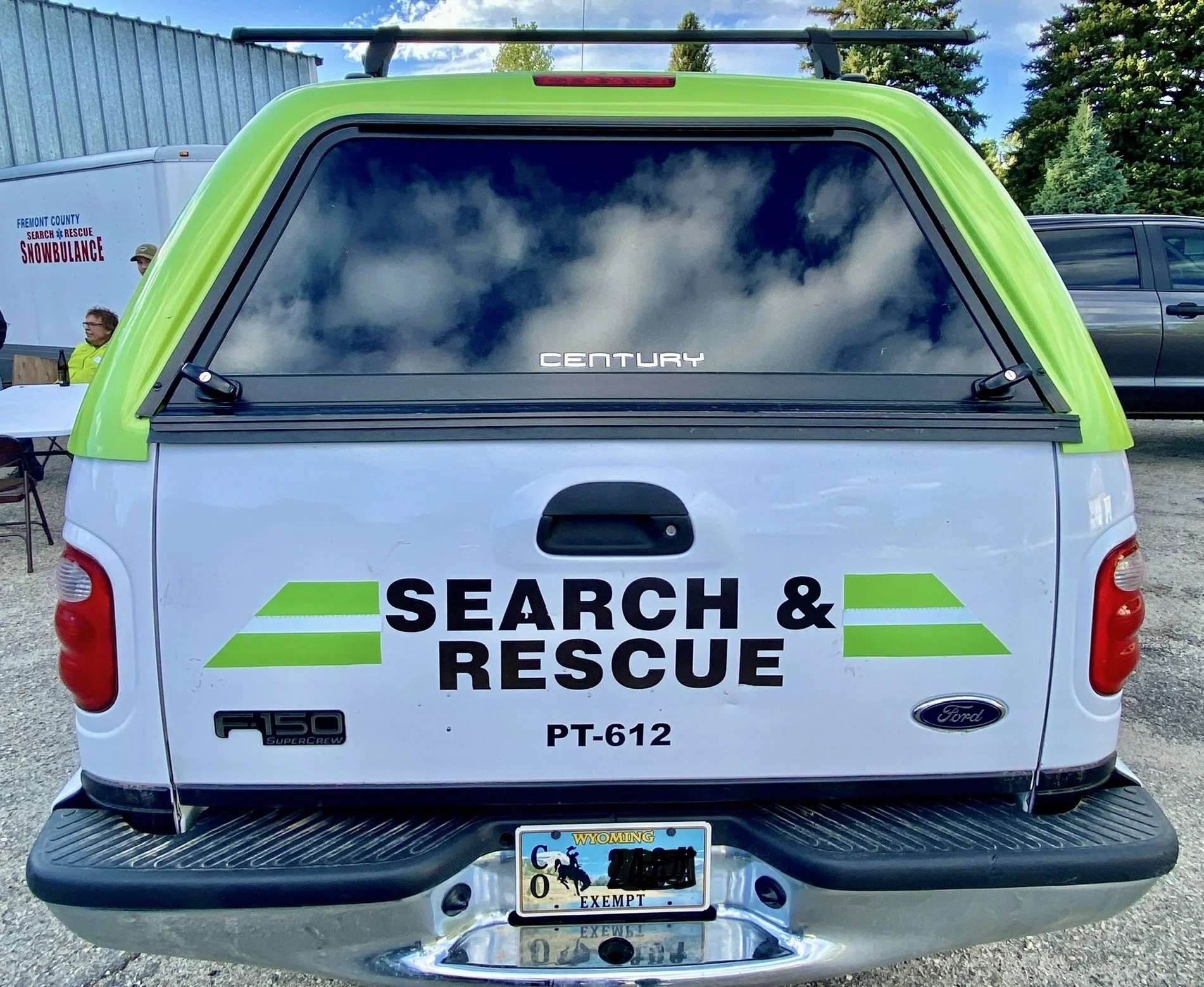The Heroes Behind Lander Search & Rescue
Lander, Wyoming
Photography contributed by Lander Search & Rescue
“911, what is your emergency?”
No one ever wants to make that call, but it happens. Accidents happen. Even the best laid plans can go awry.
The Wind River Range is a playground for hikers, anglers, rock climbers, snowmobilers, horseback riders, and other adventurers, offering over 2 million acres filled with year-round entertainment.
Safety in the great outdoors should always be a top priority for anyone, regardless if it’s while scaling the side of a mountain, backpacking into the wilderness, or riding an ATV. While these experiences can be thrilling and rewarding, they also come with potential risks that could lead to dangerous situations. If a situation does occur, however, it’s reassuring to know that help is available, even in the most remote parts of Wyoming.
Lander Search & Rescue (SAR) is a nonprofit volunteer organization that provides search and rescue services to Lander and the greater Fremont County area. The Fremont County Sheriff’s Department has three volunteer SAR groups: Lander, Riverton, and Dubois. Lander SAR consists of about 60 members who are on-call 24/7. Their team plays a crucial role in ensuring the safety of everyday explorers and outdoor enthusiasts.
To reach Lander Search & Rescue in a time of need, simply call 911. All situations must go through the Sheriff’s office dispatch before they go to SAR. Missions vary from river rescues to backcountry injuries, and even searches around town.
When SAR shows up to deliver aid, it isn’t on anyone’s mind that the heroes are volunteers, some leaving their own family functions or regular jobs for emergencies.
Era Aranow and Kirk Billings are the co-commanders for Lander SAR. Both have full time jobs in addition to helping with SAR, and feel honored to be part of the team.
Era has been with Lander Search & Rescue for ten years. When she’s not doing Search & Rescue, she’s working for Wyoming Outdoor Council and NOLS.
“I started in the ambulance and NOLS world, and Search & Rescue seemed like a great way to combine my strengths and give back to the community,” Era said.
Kirk works for the Wyoming Department of Environmental Quality doing remediation work for places that have had gasoline or diesel releases. He’s been with Lander SAR on and off since 1997, but has been a regular member for the past five years.
“I've known people who have had bad days in the mountains, between broken legs or getting lost, and joining Lander Search & Rescue seemed like a really good way to help out,” said Kirk.
Ty Vineyard, another volunteer, is a ClimbStrong coach, guides for Wind River Climbing Guides, and is the high angle rescue lead for Lander SAR. High angle rescues consist of vertical terrain and rope rescue techniques. This year is Ty’s fourth season on the Lander SAR team.
“I joined because of my ultimate desire to be somebody who can make a difference in somebody’s worst day,” Ty explained. “But I also saw it as an opportunity to develop myself as a human. I've gained a unique skill set that plays well in the team and it's a good way to give back.”
Calling 911 in case of an emergency allows the operator to ping the caller’s GPS coordinates.
Once dispatch gets the call, they confer with the deputies and put out a page to the SAR watch commanders that are on-call. From there, the watch commanders will gather as much information as possible to make a decision and take action.
“People should call 911 even if their provider doesn’t have service in their current location. 911 takes priority,” Era explained. “The emergency call will be routed through any carrier with service in the area, so it's always important to try to call 911.”
The majority of Search & Rescue teams in the U.S. are volunteers. They’ve invested countless hours into learning about navigation, communications, tactics, and first aid. Besides the grueling physical aspects, there are other unexpected challenges that come with the territory.
“Rescues can be difficult logistically, technically, or they can be difficult emotionally,” said Kirk. “If there’s somebody injured climbing Pingora, that’s a problem. If they’re ten miles from a trailhead in the backcountry and the only way to get there is to walk, ride a horse, or fly a helicopter, that’s a difficult situation as well.”
“I also think some of the most difficult ones are extended searches,” Era added. “We’re all volunteers with other jobs and sometimes searches take anywhere from a few days to a couple weeks at a time.”
The Lander SAR team provides a minimum of two training opportunities per month for volunteer members. These trainings vary from the high angle team getting together to practice rope management, the communications person teaching members how to use the radios, the swift water team practicing rescues in common areas, or even learning search theory and mapping software.
“We have very diverse missions that require diversity in our trainings,” Ty said. “Lander has an extremely capable team. The more I interact with them, I realize how many working professionals and high-quality humans are on the roster. They routinely show up and give everything they have for even the simplest of tasks.”
In addition, Lander SAR provides medical support for races and partners with local organizations for basic first aid clinics. They coordinate and assist with events such as the International Climbers’ Festival, the WYO 131 Gravel Grinder, and the Sinks Canyon Trail Races. They help with communications and aid stations – a great opportunity not only to train their SAR members, but to also help with community service and outreach.
“We like to help the community that helps us. I’ve never heard of any Search & Rescue team that would not appreciate a donation. Whether that’s for gear, uniforms, or other things.” Era said. “Missions are funded through the Sheriff's office, but most of our expenses are paid by the donations we receive."
“We also feed our teams when they come back from long days in the field. That’s not free,” Kirk added. “A handful of people will donate outright, but there’s a great way to donate by going through the Lander Community Foundation’s Challenge for Charities and they’ll match your donation.”
There’s no glitz or glamor. The team operates out of an old ambulance barn with leaky roofs and no air conditioning. So, why do they do it?
Kirk said with a smile, “It’s good to help people. It feels really good.”
learn more about
Lander Search & Rescue
Facebook: Lander Search and Rescue
Instagram: lander_sar
To make a donation: click here
